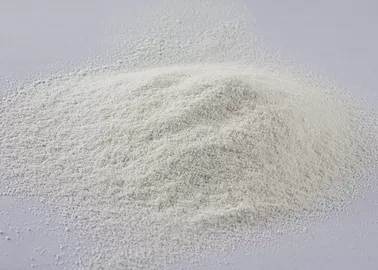فهرست محتوا
What is an Emulsifier? Definition, Applications, and Benefits
Emulsifier is a substance that plays a key role in creating and stabilizing emulsions. An emulsion is a combination of two immiscible phases, such as water and oil, that becomes uniform and stable with the help of these substances. These compounds, due to their unique molecular structure, can prevent the separation of the two phases and have widespread applications in industries such as food, cosmetics, and pharmaceuticals. Bonyan Shimi Hamgam Sanat with the UltraChem brand is a producer of emulsifiers.
We will now review the function, types, and applications of these materials and explore their role in improving the quality of various products.
What is an Emulsifier?
This substance is a compound that reduces the surface tension between two phases, enabling their combination and stability. They are typically composed of materials with both hydrophilic and lipophilic parts, which interact with both phases simultaneously. This feature increases the longevity and uniformity of the mixture.
How it Works
These materials settle at the interface between the two phases (such as water and oil) and create a uniform structure. One part of the molecule dissolves in water, and the other part attaches to the oil. This process prevents the separation of the two phases and keeps the mixture stable.
Main Types of Emulsifiers
Stabilizing materials are categorized based on their origin and structure:
3.1. Natural
- Lecithin: Extracted from egg yolk or soybeans and used in food and cosmetic products.
- Pectin and Guar Gum: Derived from plant sources and used for stabilizing food products.
3.2. Synthetic
- Tween and Span: Chemical compounds used to produce products in pharmaceutical and cosmetic industries.
3.3. Nano
Advanced materials designed at the nano scale to improve performance and absorption in advanced industries.
4. Applications
1. Food Industry
Emulsifiers play an important role in improving the quality and shelf life of food products. These substances create a uniform texture and prevent the separation of different phases in food products. The following outlines their applications in this industry:
- Production of Sauces and Mayonnaise:
Sauces and mayonnaise are examples of oil-in-water (O/W) emulsions, which would lose their stability without emulsifiers. Emulsifiers like lecithin help oil and water combine uniformly in these products and prevent their separation. This maintains product quality and extends its shelf life. - Chocolates and Pastry Products:
In chocolate production, emulsifiers help reduce the viscosity (stickiness) of raw materials, giving the chocolate a softer and more uniform texture. In products like biscuits and cakes, emulsifiers assist in better combining fats and water, resulting in better taste and texture. - Dairy Products (High-fat Milk and Ice Cream):
Emulsifiers play a critical role in high-fat dairy products. In ice cream production, these materials create a smooth, creamy texture and prevent the formation of ice crystals. They also prevent fat separation in enriched milk or fat-containing beverages. - Margarine and Butters:
In the production of butter and margarine, emulsifiers help achieve uniform water distribution in the oil phase and prevent cracking or separation of phases in the final product.

2. Pharmaceutical Industry
In the pharmaceutical industry, emulsifiers play a crucial role in the production of drugs and therapeutic products. These substances help stabilize active compounds, increase absorption, and enhance the efficacy of drugs.
- Liquid Medications:
Many liquid medications, including syrups and injectable solutions, require the precise combination of different phases. Emulsifiers help ensure that the active ingredients are evenly distributed in the base liquid and prevent the settling or separation of substances. - Topical Creams and Ointments:
Creams and ointments are typically made by combining water and oil. Emulsifiers in these products ensure the stability of the mixture and help improve the effectiveness of the drugs on the skin. They also create a smoother texture, making the use of creams more comfortable for patients. - Targeted Medications and Nanoemulsions:
In advanced drug delivery systems, nanoemulsifiers play a key role in delivering drugs to specific parts of the body. These substances help increase absorption and reduce side effects.
3. Cosmetics and Personal Care Industry
Cosmetic and personal care products rely on emulsifiers to maintain stability and provide a pleasant experience for consumers.
- Moisturizers and Sunscreens:
Creams are typically composed of a combination of water and oil. Emulsifiers create a protective layer between these two phases, ensuring the stability of the product. They also help evenly distribute active ingredients such as vitamins and UV filters in sunscreen products. - Lotions and Shampoos:
In shampoos, emulsifiers play an important role in distributing detergents and oil removers evenly. They also help improve the foaming properties of the product and enhance the softness of hair after washing.

- Special Cosmetic Products:
In the production of cosmetics such as lipsticks, foundations, and eyeshadows, emulsifiers give products a smoother texture and longer-lasting properties. They help the products spread easily on the skin, providing an even coverage.
4. Agriculture and Chemical Industry
Emulsifiers play a key role in improving the efficiency and stability of products in agriculture and the chemical industry.
- Fertilizers and Pesticides:
Emulsifiers in fertilizers and pesticides prevent the separation of different phases and ensure uniform distribution of active ingredients in water. This feature increases the efficiency of these products when used in irrigation systems or sprayed on plants. - Paints and Industrial Coatings:
In the paint industry, emulsifiers help achieve a uniform dispersion of pigments in liquids, resulting in higher-quality and more durable coatings. These materials also reduce tackiness and improve paint flow. - Petrochemical Products:
In the oil industry, emulsifiers are used in extraction and refining processes. These substances help separate water from crude oil, optimizing the process.
General Benefits of Using Emulsifiers in Various Industries
- Improved Stability: Prevents the separation of different phases in products.
- Enhanced Quality: Creates a smoother texture and uniform appearance in food, pharmaceutical, and cosmetic products.
- Increased Efficiency: Improves the distribution of active ingredients in agricultural and pharmaceutical products.
- Longer Shelf Life: Maintains the characteristics of products for a longer period.
- Better Compatibility: Improves the interaction between different components in products.
Conclusion
Stabilizing agents play an essential role in enhancing the quality and extending the shelf life of products. These compounds are particularly useful in the food, pharmaceutical, and cosmetic industries, and with the use of advanced technologies like nano, their capabilities have been significantly enhanced.

